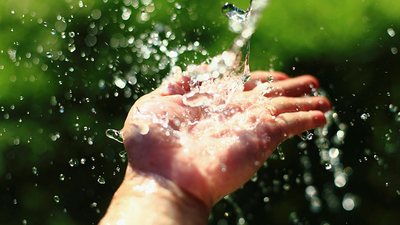Conserving water in domestic plumbing and heating systems

Water plays an essential role in our everyday lives and, as the UK population continues to grow, demand for this vital resource will grow with it. As greater efforts are made to conserve water, installers will play a vital role in minimising usage in individual properties.
Whether it’s used to wash clothes or take a shower, clean dishes or put the kettle on, the average person in the UK uses around 140 litres of water every day. In turn, this sees homes represent a significant proportion of the country’s water usage, making them a key factor in reducing usage.
In making homes more efficient when it comes to water usage, installers and specifiers will play a key role. Let’s take a look at the things they can do when installing plumbing and heating systems to support their customers and ultimately have a positive impact on sustainability through water conservation.
Minimise water loss from leaks
While individual water usage adds up to significant consumption, there is another factor that cannot be overlooked – leaks.
Every year, millions of litres of water are lost to leaks, whether through burst pipes or leaky appliances. In fact, the damage caused by leaks in the home amounts to around £2 million every day. Therefore, one answer to conserving water lies in rectifying this problem.
Alongside creating plumbing systems that minimise the potential for leaks, such as using push-fit fittings and pipe from JG Speedfit that require fewer connection points – installers can also recommend the use of leak detection technology, such as the WRAS-approved Reliance Valves’ MultiSafe Leak Detection System.
By actively monitoring water usage, the system intuitively recognises significant fluctuations in consumption to identify water leaks. To avoid further water losses – and prevent damage – the system can automatically shut off the water supply and send a real-time alert to the building owner via text message or email.

Specify for performance
Aside from innovative leak protection systems, installers and specifiers can also leverage valves to maintain flow rates and conserve water.
Reliance Valves’ flow regulation valves can be installed within a domestic plumbing system to ensure the flow is maintained at a desirable level, avoiding excessive volumes of water from being pulled through. For properties with a water meter installed, flow regulation valves can help to conserve water and have a direct impact on bills.
Of course, the broader plumbing and heating system will also be a consideration for plumbers looking to maximise efficiency. Here, selecting the appropriate solutions to deliver reliable performance and long-term durability is essential – something which has contributed to the growth in plastic pipes and fittings.
Plastic push-fit connections deliver tight, leak-tight seals – which can be made without the need for tools or hot works. This makes plastic components easier to work with, even in parts of a system where access is difficult. Alongside fittings, polybutylene pipe from JG Speedfit supports the installation of flexible and durable pipe, contributing to stronger and longer pipe runs that have fewer connection points, which results in more efficient plumbing and heating systems, thereby conserving water.
By taking a holistic view of a domestic system, installers and specifiers can be proactive in delivering greater levels of efficiency for users. As a result, water usage and wastage can be reduced, making homes more sustainable for the future.
